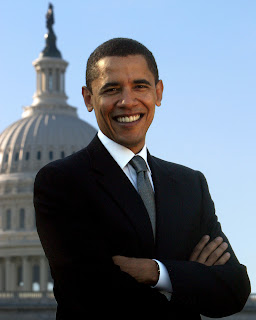
One of the troubling things about this blog are the perceptions revealed by some of the commentators, especially about economic policy.
There’s a steady drumbeat from some who take a rather unsophisticated view that President Barack Obama is some kind of wild socialist out to ruin free market economics. Dark and hidden agendas abound from nationalizing banks and health to setting up death committees to getting rid of all individual freedom.
It is unfortunate that such rhetoric falls to the Sarah Palin level (“I can see Russia from my house!”) when the truth is that economic policy is made pretty much by the same group of Wall Street bankers, economists from elite Eastern universities and well-educated civil servants who move gracefully from multi-national groups such as the World Bank and IMF to the Federal Reserve to the White House, and so on.
What you have is basically the same group recommending policy for Bill Clinton, George W. Bush and Barack Obama. The common thread is a belief in free markets, deregulation, and government bailouts when the going gets tough. The same basic medicine that worked in Mexico in 1995 and in Southeast Asia in 1997 works for the U.S. in 2008-2009. You toss in a lot of dough to clear things up and get things moving and then it’s back to business as usual.
What is interesting, if not stunning, about some of the Bacon’s Rebellion commentators is that they really see Obama as a kind of Trotsky, when, in fact, he is propped up by exactly the same club of advisers that propped up Clinton and Bush. The truth is that Obama’s is non-intrusive and rather limp when it comes to the kind of federal oversight these smart and greedy people really need. Despite the whining from the right, one year into his presidency, there hasn’t been one solid and successful step to reign in the financial sector. But let’s connect the dots:
- Goldman Sachs. This is the gold-plated investment bank on Wall Street, the uber-institution that all kneel before..It produced Robert Rubin, who was Clinton’s second Treasury Secretary, who backed dereg of all sorts, including ending Glass Steagall which had kept investment and commercial banking separate. Globalists such as Clinton badly anted to dump the law. Henry “Bazooka in My Pocket” Paulson, Bush’s second Treasury Secretary came from, you guessed it, Goldman Sachs. Paulson masterminded the 2008 government bailout and the TARP act, which gave all kinds of bennies to companies deemed “too big to fail.” Mind you, this was long before Obama won the election.
- Academics and the Fed. Two others who fit very much into the dereg, most anything goes mold come from academia and the Federal Reserve. Current Fed Chief Ben Bernanke, a Princeton Professor and Fed member, was one. Another is current Treasury Secretary Timothy Geithner who had been an academic and a bureaucrat in multinational groups before become head of the New York Fed. In that role, Geithner worked closely with Paulson to arrange the TARP bailouts and played a sometimes questionable role in forcing Bank of America to bail out Merrill Lynch without apparently coming clean about how bad the books were.
- Ones straddling everything. Larry Summers comes to mind. He’s been everywhere — president of Harvard, last of Clinton’s Treasury Secretaries, World Bank. With Clinton, he worked alongside Rubin to dump Glass Seagall and save Mexico and Asia. He’s now chief economic adviser to Obama and pretty much follows the same course in Clinton-Bush-Obama. Summers’ reputation for abrasiveness, especially to women, got him kicked out of Harvard. I knew him when I was a correspondent in Moscow during the Clinton Administration and he gave us very useful and entertaining background briefings, sort of like graduate student seminars.
The curious thing about Obama is that he seems to be getting economic advice from the same old, same old that advised all presidents, Democrat or Republican, since 1992. Since Obama has close ties to the University of Chicago, one wonders why he hasn’t picked up some of the free market magic that evolved from there, Uncle Milton Freidman and all that.
During the 2008 campaign, there were articles predicting that Obama might actually come up with U of Chicago free market stuff with a modern twist one it, a la “Behaviorist” economics which, (at least as far as I get it) is laissez-faire with the government sometimes coming in and using tools like taxes and the like to push public behaviors in directions it wants. Unfortunately, the Chicagoans are few and far between when it comes to economic (although not political) influence, it’s all very Northeastern and the same old crowd.
A commentator to one of my blogs, probably an illiterate, right-wing Republican, made a big deal about the stock market tanking for a couple of days when Obama proposed taxing proprietary trading by banks. This was supposed to have been some kind of socialist plot.
Well, it turns out that ideas like that, along with other ideas about getting tough with self-serving bankers and their minions, don’t come from Che, or Fidel or Mao or even Barney Frank (who, BTW, gets most of his campaign money from big banks and investment funds).
Nossir. The ideas come from Paul Volcker, the celebrated former Fed chief, who helped bail the nation out of Jimmy Carter’s inflation swamp through some very tough love monetary policies. It was Volcker who set up the decade of prosperity under beloved Republican Ronald Reagan (along with Reagan’s deficit spending sprees).
In sum, we’re not facing a takeover by the subversive left. We are facing business as usual.
Peter Galuszka


